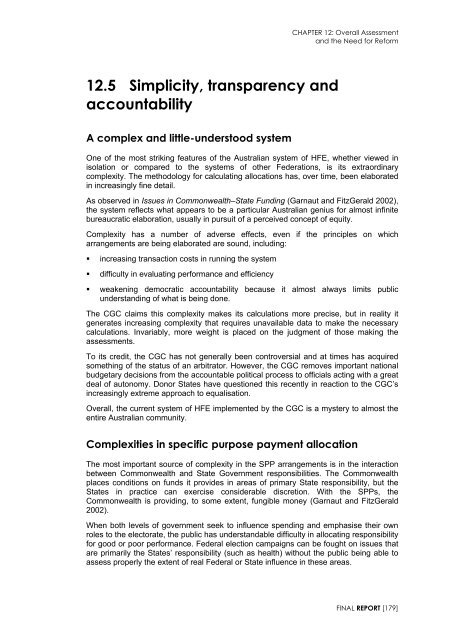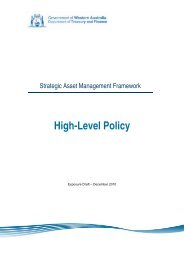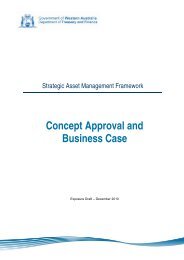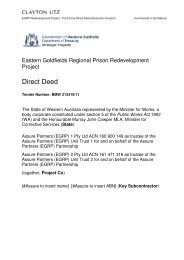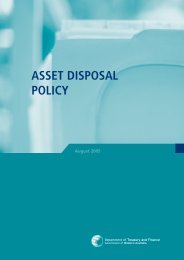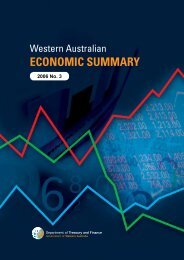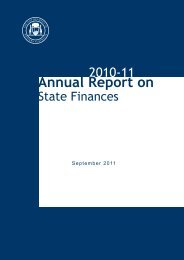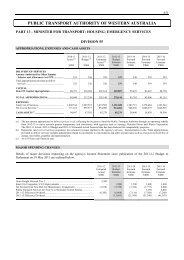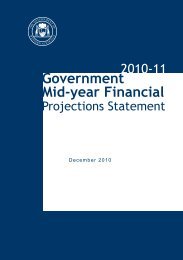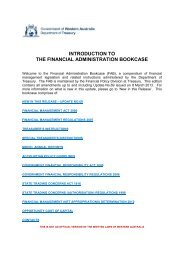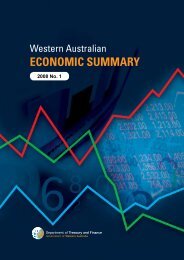Garnaut Fitzgerald Review of Commonwealth-State Funding
Garnaut Fitzgerald Review of Commonwealth-State Funding
Garnaut Fitzgerald Review of Commonwealth-State Funding
You also want an ePaper? Increase the reach of your titles
YUMPU automatically turns print PDFs into web optimized ePapers that Google loves.
CHAPTER 12: Overall Assessment<br />
and the Need for Reform<br />
12.5 Simplicity, transparency and<br />
accountability<br />
A complex and little-understood system<br />
One <strong>of</strong> the most striking features <strong>of</strong> the Australian system <strong>of</strong> HFE, whether viewed in<br />
isolation or compared to the systems <strong>of</strong> other Federations, is its extraordinary<br />
complexity. The methodology for calculating allocations has, over time, been elaborated<br />
in increasingly fine detail.<br />
As observed in Issues in <strong>Commonwealth</strong>–<strong>State</strong> <strong>Funding</strong> (<strong>Garnaut</strong> and FitzGerald 2002),<br />
the system reflects what appears to be a particular Australian genius for almost infinite<br />
bureaucratic elaboration, usually in pursuit <strong>of</strong> a perceived concept <strong>of</strong> equity.<br />
Complexity has a number <strong>of</strong> adverse effects, even if the principles on which<br />
arrangements are being elaborated are sound, including:<br />
• increasing transaction costs in running the system<br />
• difficulty in evaluating performance and efficiency<br />
• weakening democratic accountability because it almost always limits public<br />
understanding <strong>of</strong> what is being done.<br />
The CGC claims this complexity makes its calculations more precise, but in reality it<br />
generates increasing complexity that requires unavailable data to make the necessary<br />
calculations. Invariably, more weight is placed on the judgment <strong>of</strong> those making the<br />
assessments.<br />
To its credit, the CGC has not generally been controversial and at times has acquired<br />
something <strong>of</strong> the status <strong>of</strong> an arbitrator. However, the CGC removes important national<br />
budgetary decisions from the accountable political process to <strong>of</strong>ficials acting with a great<br />
deal <strong>of</strong> autonomy. Donor <strong>State</strong>s have questioned this recently in reaction to the CGC’s<br />
increasingly extreme approach to equalisation.<br />
Overall, the current system <strong>of</strong> HFE implemented by the CGC is a mystery to almost the<br />
entire Australian community.<br />
Complexities in specific purpose payment allocation<br />
The most important source <strong>of</strong> complexity in the SPP arrangements is in the interaction<br />
between <strong>Commonwealth</strong> and <strong>State</strong> Government responsibilities. The <strong>Commonwealth</strong><br />
places conditions on funds it provides in areas <strong>of</strong> primary <strong>State</strong> responsibility, but the<br />
<strong>State</strong>s in practice can exercise considerable discretion. With the SPPs, the<br />
<strong>Commonwealth</strong> is providing, to some extent, fungible money (<strong>Garnaut</strong> and FitzGerald<br />
2002).<br />
When both levels <strong>of</strong> government seek to influence spending and emphasise their own<br />
roles to the electorate, the public has understandable difficulty in allocating responsibility<br />
for good or poor performance. Federal election campaigns can be fought on issues that<br />
are primarily the <strong>State</strong>s’ responsibility (such as health) without the public being able to<br />
assess properly the extent <strong>of</strong> real Federal or <strong>State</strong> influence in these areas.<br />
FINAL REPORT [179]


